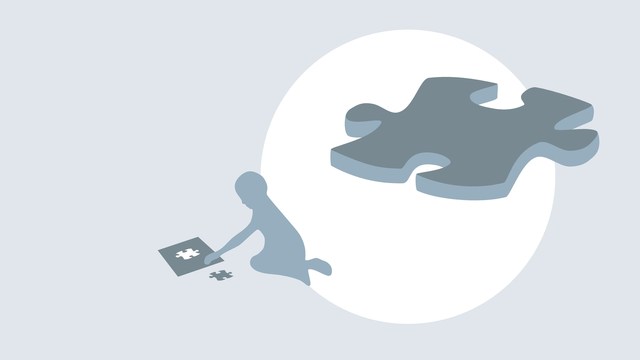I just want to let everyone know that April is Autism Awareness Month. There are many autism websites that inform and support so check them out. World Autism Awareness Day is April 2nd.
Today, 1 in 150 individuals is diagnosed with autism, making it more common than pediatric cancer, diabetes, and AIDS combined. Source - www.autismspeaks.com
Some info -
What is autism?
"Autism (sometimes called “classical autism”) is the most common condition in a group of developmental disorders known as the autism spectrum disorders (ASDs). Autism is characterized by impaired social interaction, problems with verbal and nonverbal communication, and unusual, repetitive, or severely limited activities and interests.
Other ASDs include Asperger syndrome, Rett syndrome, childhood disintegrative disorder, and pervasive developmental disorder not otherwise specified (usually referred to as PDD-NOS). Experts estimate that three to six children out of every 1,000 will have autism. Males are four times more likely to have autism than females. What are some common signs of autism? There are three distinctive behaviors that characterize autism. Autistic children have difficulties with social interaction, problems with verbal and nonverbal communication, and repetitive behaviors or narrow, obsessive interests. These behaviors can range in impact from mild to disabling. The hallmark feature of autism is impaired social interaction. Parents are usually the first to notice symptoms of autism in their child. As early as infancy, a baby with autism may be unresponsive to people or focus intently on one item to the exclusion of others for long periods of time. A child with autism may appear to develop normally and then withdraw and become indifferent to social engagement. Children with autism may fail to respond to their name and often avoid eye contact with other people. They have difficulty interpreting what others are thinking or feeling because they can’t understand social cues, such as tone of voice or facial expressions, and don’t watch other people’s faces for clues about appropriate behavior. They lack empathy.
Many children with autism engage in repetitive movements such as rocking and twirling, or in self-abusive behavior such as biting or head-banging. They also tend to start speaking later than other children and may refer to themselves by name instead of “I” or “me.” Children with autism don’t know how to play interactively with other children. Some speak in a sing-song voice about a narrow range of favorite topics, with little regard for the interests of the person to whom they are speaking. Many children with autism have a reduced sensitivity to pain, but are abnormally sensitive to sound, touch, or other sensory stimulation. These unusual reactions may contribute to behavioral symptoms such as a resistance to being cuddled or hugged. Children with autism appear to have a higher than normal risk for certain co-existing conditions, including fragile X syndrome (which causes mental retardation), tuberous sclerosis (in which tumors grow on the brain), epileptic seizures, Tourette syndrome, learning disabilities, and attention deficit disorder.
For reasons that are still unclear, about 20 to 30 percent of children with autism develop epilepsy by the time they reach adulthood. While people with schizophrenia may show some autistic-like behavior, their symptoms usually do not appear until the late teens or early adulthood. Most people with schizophrenia also have hallucinations and delusions, which are not found in autism.
How is autism diagnosed?
Autism varies widely in its severity and symptoms and may go unrecognized, especially in mildly affected children or when it is masked by more debilitating handicaps. Doctors rely on a core group of behaviors to alert them to the possibility of a diagnosis of autism. These behaviors are: impaired ability to make friends with peers impaired ability to initiate or sustain a conversation with others absence or impairment of imaginative and social play stereotyped, repetitive, or unusual use of language restricted patterns of interest that are abnormal in intensity or focus preoccupation with certain objects or subjects inflexible adherence to specific routines or rituals Doctors will often use a questionnaire or other screening instrument to gather information about a child’s development and behavior. Some screening instruments rely solely on parent observations; others rely on a combination of parent and doctor observations. If screening instruments indicate the possibility of autism, doctors will ask for a more comprehensive evaluation. Autism is a complex disorder. A comprehensive evaluation requires a multidisciplinary team including a psychologist, neurologist, psychiatrist, speech therapist, and other professionals who diagnose children with ASDs. The team members will conduct a thorough neurological assessment and in-depth cognitive and language testing. Because hearing problems can cause behaviors that could be mistaken for autism, children with delayed speech development should also have their hearing tested. After a thorough evaluation, the team usually meets with parents to explain the results of the evaluation and present the diagnosis. Children with some symptoms of autism, but not enough to be diagnosed with classical autism, are often diagnosed with PDD-NOS. Children with autistic behaviors but well-developed language skills are often diagnosed with Asperger syndrome. Children who develop normally and then suddenly deteriorate between the ages of 3 to 10 years and show marked autistic behaviors may be diagnosed with childhood disintegrative disorder. Girls with autistic symptoms may be suffering from Rett syndrome, a sex-linked genetic disorder characterized by social withdrawal, regressed language skills, and hand wringing.
What causes autism?
Scientists aren’t certain what causes autism, but it’s likely that both genetics and environment play a role. Researchers have identified a number of genes associated with the disorder. Studies of people with autism have found irregularities in several regions of the brain. Other studies suggest that people with autism have abnormal levels of serotonin or other neurotransmitters in the brain. These abnormalities suggest that autism could result from the disruption of normal brain development early in fetal development caused by defects in genes that control brain growth and that regulate how neurons communicate with each other. While these findings are intriguing, they are preliminary and require further study. The theory that parental practices are responsible for autism has now been disproved." Source - http://www.ninds.nih.gov/disorders/autism/detail_autism.htm
Other websites (and for information on other conditions like Asperger Syndrome) please click on... www.autism-society.org www.autismspeaks.org www.autism.org www.autism.com www.aspergers.com




